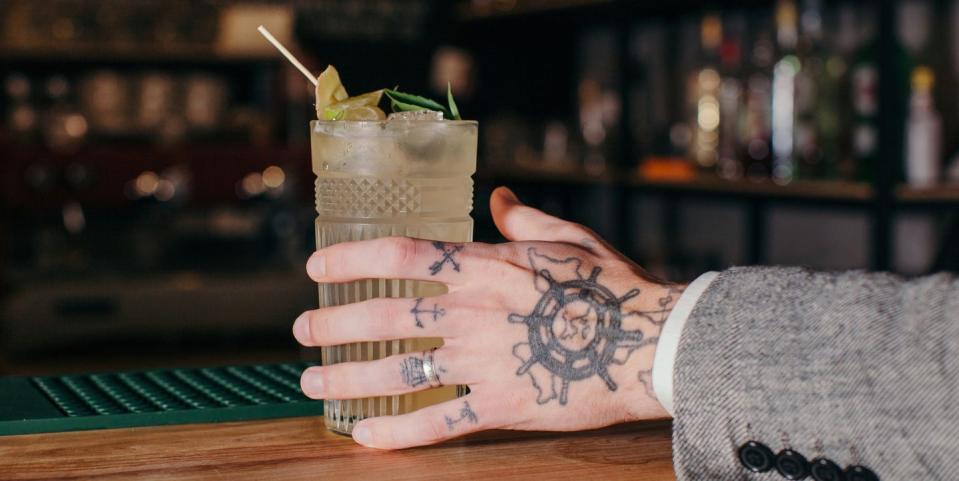Ask Yourself One Question Before Doing 'Sober October'

YOU'VE SEEN THE Instagram posts and the social "proof." Sober October is in full swing.
On the heels of Dry January, the sober curious movement, and alcohol-free bars, Sober October (in case you're unfamiliar) is just that: zero booze for all 31 days in the month.
And, really, the rise of Sober October may not have come at a better time. During the last 18 months, alcohol sales have skyrocketed, with some reports showing a 56 percent increase in alcohol sales.
As a registered dietitian, I'm all for this trend of people dabbling in experiments that encourage them to look at their alcohol consumption. Especially now, given the current upward trends in drinking.
But in that same breath, I have also heard and seen many struggle to stop any behaviour cold turkey, only to battle with long-term adherence.
The line, for me, is why.
If you're making an overnight declaration to stop something because you're suffering from the consequences, that's one thing. That kind of decision often comes with a dose of shame and negative self-talk. Insert your average New Year's I'll-never-touch-chocolate-cake-again resolution. Or, maybe an even better example here: the I-drank-way-too-much-last-night-and-will-never-do-that-again swearing off. I've seen this kind of thinking too often and these types of resolutions rarely work.
So simply tossing your hat into the Sober October, or Dry January, or whatever is next, only to have a celebratory overindulgent Nov 1st, isn’t what I’d suggest as a long-term, behaviour-change strategy for success.
Now this isn’t to say if you’ve made an October promise to yourself, forget about it – and double down on the booze instead. It's healthy for you to look at how much you're drinking and experiment with cutting back.
I've had plenty of clients who have had weekend drinking evolve into them taking in more than the seven-drinks-a-week-recommend number per week – and it's holding them back.
It's true that there's no physiological benefit to alcohol. And the health benefits of an occasional drink (possible heart health, the joy of indulgence) are often pushed hard and celebrated by many, but still up for research debates.
What is known is the very real downsides of regular over-consumption: interference with quality sleep, excess caloric intake, and an inability to focus (not to mention even more serious issues like organ damage and alcohol-related diseases.)
So instead stopping cold turkey, maybe there’s an alternative.

I’ve lectured to groups around the world and constantly hear the same sentiments: People share that for them alcohol has become a crutch and, if they decline to drink, they’ve had shade thrown at them by others.
Interestingly, one woman in a group I talked to told me when she enters a work event, she tips the server, asking them not to bring her drinks, but instead offer seltzer and lime.
If Sober October is that for you – a chance to set some boundaries and see if you can stick to them – then good on you. It gives you the opportunity to ask yourself some very good questions: Do you feel better the next day without a daily drink(s)? Are your interactions with your spouse/kids/co-workers better with a higher quality sleep vs. a regular pass out on the couch in the evening? Are you ... happier?
What I'm saying is it doesn't have to be months that you drink and months you don't drink.
Perhaps, instead, there's an alcohol spectrum, where simply less alcohol is an important improvement. And, really, it's the same way we talk about good nutrition as a whole; sometimes a little less is enough and it doesn't have to be all or nothing.
You Might Also Like

 Yahoo Finance
Yahoo Finance 